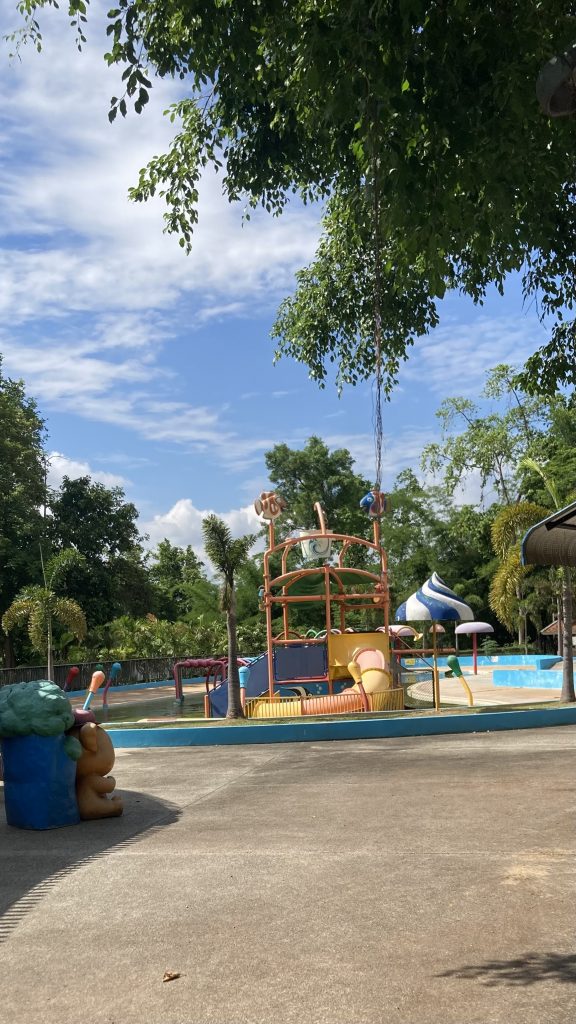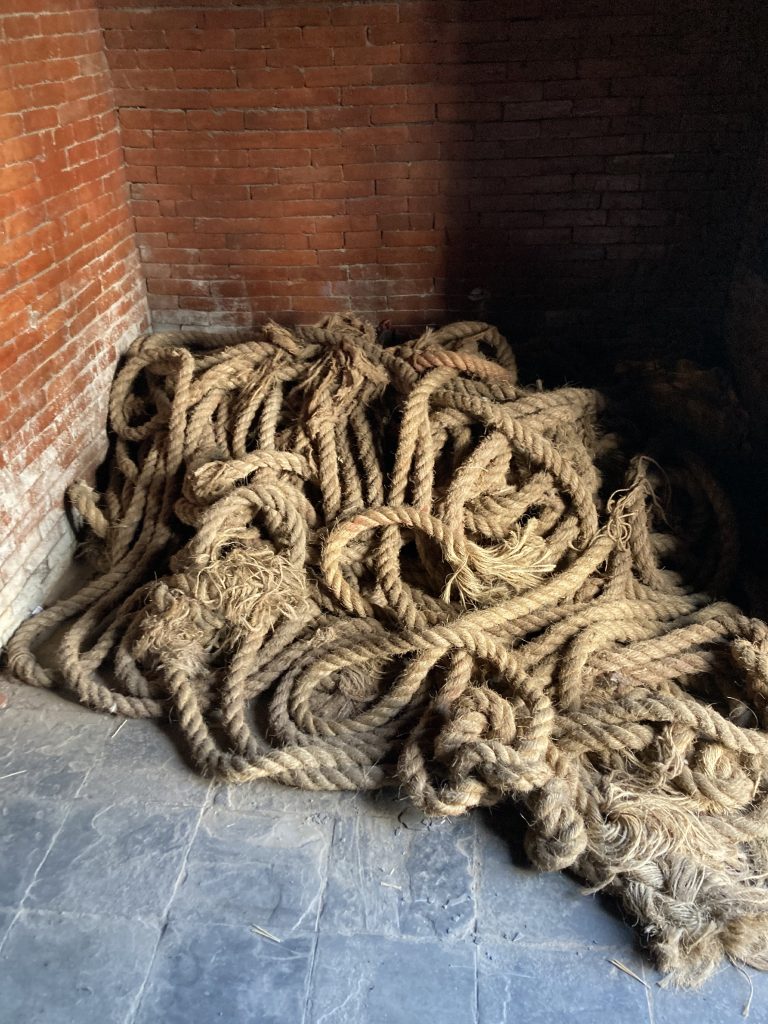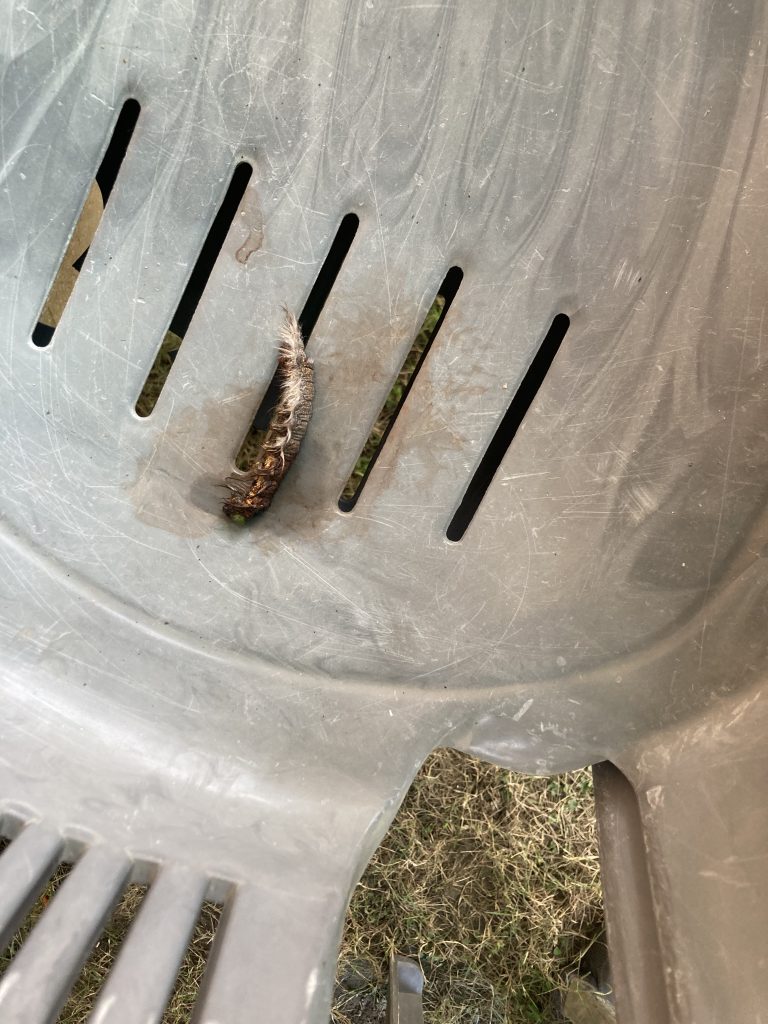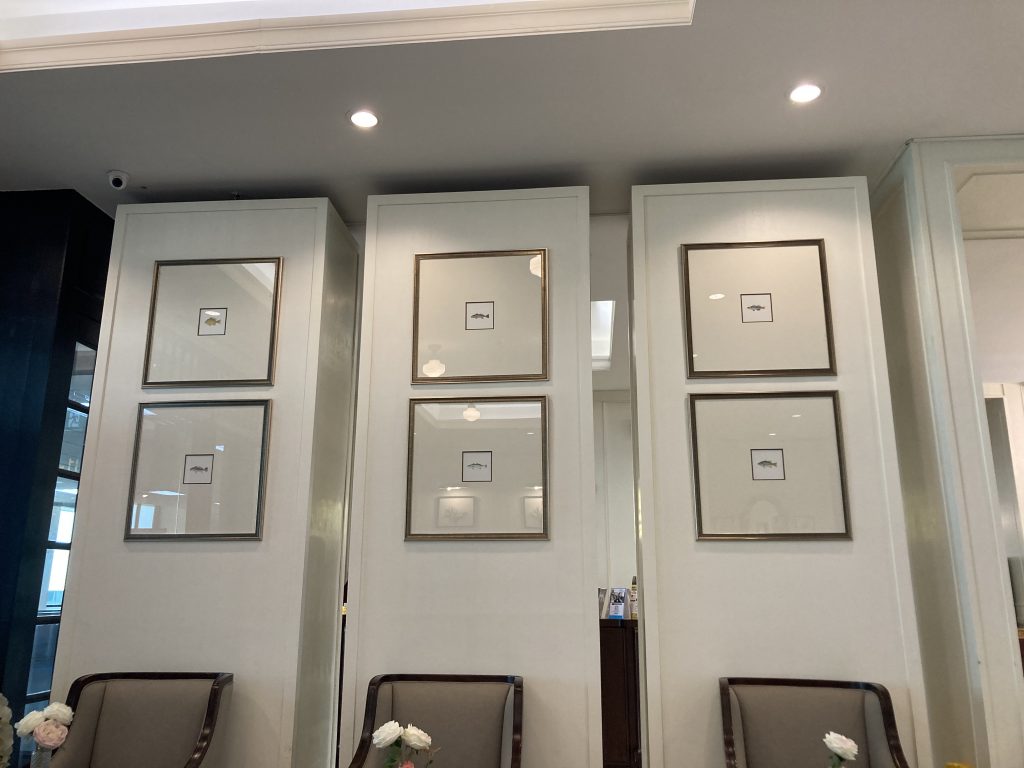dry


‘‘SOULFOOD’ is a matte black cube on four white wheels, looking for all the world like a car pulled from a children’s drawing (this child only had a black crayon). The windshield, if it exists, is matte black and indistinguishable from any other surface. ‘SOULFOOD’ has a habit of departing suddenly and in a direction that doesn’t seem like its front (though, given the identical sides, it’s difficult to say where any indication of its front or back comes from). ‘SOULFOOD’ has a habit of appearing in unlikely places, usually sandwiches uncomfortably between two other eateries but sometimes in the middle of a forest or at the top of an icy hill. It’s not a particularly welcoming sight, but it smells great.
There is nothing outwardly frightening about ‘SOULFOOD,’ if you discount the above description. It doesn’t exist in a way that flies in the face of established reality. The windshield thing could be the result of paint or glass or cameras. The odd behavior could be a form of guerilla marketing. The smell could be talent, plain and simple. What frightens people about ‘SOULFOOD’ is that they don’t seem to accept any sort of acknowledged currency. They serve food for… free?
The question mark, here, indicates a widely held suspicion that ‘SOULFOOD’ is taking ‘something else.’ Something that isn’t immediately missed.
This may be the most comforting thing about ‘SOULFOOD.’ This taking- this manipulation of customers in the process of taking- it is the cornerstone of every modern eatery, really. ‘SOULFOOD’s only crime is doing it in a way that draws undue attention.’
-an excerpt, Autumn by the Wayside

‘Wished for gold, was transported into sealed, underground cavern.’ ‘Wished for youth, became a child.’ ‘Wished death upon enemies, killed in massive explosion with others.’
‘The Garden of Monkey Paws’ doesn’t feel the need to go into details about these events. It doesn’t try to explain how monkeys’ paws work or that ‘The Orchard’ exists as a means of producing them. It is simply a collection of extinguished paws along with short descriptions of their results. It’s a cautionary tale for those of us willing to read behind the lines. Potentially a guide for those who can’t.
‘Don’t try to pry the fingers from the fists at ‘The Garden of Monkey Paws.’ Outside of the occasional burst of malicious irony, the magic doesn’t return to the monkeys so easily. Knowing this, ‘The Garden’ loses what little allure it might have had. Outside of a few large-scale wish botches (we won’t spoil the surprise), the entire facility is devoted to a striking and disturbing display of dead monkeys. It smells like it, too.’
The paws are arranged by general wish categories. I spend a good deal of time in a room in the back that deals with wishes regarding love and sex. Irony can be particularly cruel in this vein of wishing and, for some reason, ‘The Garden’ has chosen to paint the nails of the monkey paws involved.
Rumor has it that the staff are open to bribes, that monkey paws ‘fall off the back of the truck’ all the time. Honestly, you couldn’t pay me to travel with something so dangerous.
Just as I’m about to wrap up and head to the camper, something moves in my peripheries. I turn and my absurd first thought it that someone is flagging me down from across the room. It’s a monkey paw, of course, opened like a blooming flower.
Then, with the sound of a creaking door, they all open at once.
The lights go red and a siren sounds. ‘The Garden of Monkey Paws’ shakes as its emergency doors begin to close. There’s shouting outside before a voice comes on over the PA system:
THIS IS NOT A TEST. THE PAWS ARE ACTIVE AND DANGEROUS. MAKE NO WISHES AND RETREAT TO A DISTANCE OF ONE MILE. CLOSURE WILL BE ATTEMPTED IN FIVE MINUTES.
The shouting is clearer outside, the curators arguing over what appears to be a long script for a carefully worded wish that would re-close all of the paws without room for malicious irony. The thing is, irony works a bit like an explosive. The more it’s compressed, the bigger it tends to blow up.
Someone is weeping inside ‘The Garden,’ cursing the cruelty of the universe between sobs. Someone got greedy and tried to make a wish. He won’t be the last.
I’m happy to put ‘The Garden of Monkey Paws’ behind me- to put the whole concept behind me, really- and, as far as my phone can tell, there are no more entries in the guide for monkey paw-adjacent destinations. The book is changing all the time, though. I find myself less sure of anything the longer I travel.
-traveler

‘‘The Monkey Paw Orchard’ is kind of like a reserve in that it contains the only significant population of monkeys known for their wish-granting appendages and it’s kind of like a slaughterhouse in that the animals are being raised for product. Paw Monkeys are rare for the same reason their posthumous powers should be used with caution- they often fall prey to tragic ironies before they’ve reached an age at which their paws have matured for harvest. Those that survive the early onset of irony will sometimes kill wizened older monkeys and attempt to make wishes on their paws before employees of the reserve can stop them. Those monkeys that don’t die in the attempt and who subsequently survive their own near-assassinations and who pass the prime age for breeding are killed and their hands are sold to billionaires, celebrities, and to a non-profit that places monkeys’ paws in derelict houses, buried chests, and shifty pawnshops all across the country.
Rumor has it that ‘The Monkey Paw Orchard’ is what happens when someone tries to wish for more wishes but, if that were the case, there would probably be a lot more of these monkeys around.’
I happen to be on site when one of the younger paw monkeys kills an elder nearing harvest. It’s quick and brutal- a heavy stone to the back of the head. Again. Again. Hard to make sure it’s done. Fast to get to the wishes before someone comes to stop it. The paws don’t need to be removed for the magic to work. That’s more a matter of convenience than anything.
Obviously without understanding the language of the monkeys, I can’t say for sure what its wish was, but I was surprised to see that nobody came to retrieve the dead specimen or quiet the murderer as it did excited victory laps around the massive enclosure that constitutes ‘The Orchard.’
Weeks later I notice the same two monkeys in the background of an image posted to ‘The Orchard’s’ social media feed. The dead monkey still rots in the reserve. The living monkey is all skin and bones, on the verge of death itself. I figured the monkey had asked for more time to make more wishes.
Now, I wonder if the monkey didn’t just want to be left alone.
-traveler

There is something about people who loiter in dispensaries, something that makes them less bearable than your run-of-the-mill addict. It’s the snobbery, I think. The same depth of knowledge and willingness to flaunt it that certain serious coffee drinkers sometimes exhibit. Legalization, which I’m generally for, has only made it worse. The people who were smoking premium pot before it could be bought in-store lord it over those who started smoking when it was safe. The people who stick to edibles talk lung cancer and the people who smoke talk diabetes. It’s the same entitlement capitalism breeds in every market- each consumer must think they alone are consuming the most efficiently. The most ethically.
All of these people are present at ‘Borderline,’ and I get the sense that everyone knows I am the lowest common denominator.
I order a coffee. I’ve given everything else up.
‘Combine the legalized weed of Colorado and the cheap chemical moonshine of Arizona’s Charles County and you get a half-mile, yard-wide strip of land where a person can be truly cruel to their body and break no laws in the process. ‘Borderline’ owns this property in its entirety and what it loses in double taxation it makes up for with a frighteningly loyal customer base- one that leans libertarian and gun-owning.
Police tend to steer clear of ‘Borderline,’ mostly due to a series of successful suits waged on local departments, claiming that officers from either or both sides were acting out of jurisdiction and arresting citizens who were breaking no local laws. ‘Borderline’ has compensated by employing a private security team for each side of the property, each with a very strict protocol regarding what they are legally allowed to do to customers on either side of the border. Bouncers on one side sometimes herd unruly customers to the other, creating a ping-pong game of angry drunkards.
‘Borderline’ sits in stark contrast to the legal puzzle box that sits at ‘Four Corners.’ No man sits at ‘Four Corners’ without breaking one law or another. It is impossible to visit without arrest.’
My order for coffee takes a while. I get the sense they don’t particularly want to brew it but why else have it on the menu? Why not just tell me the machine is broken?
It takes me a while to realize that there is no music playing at ‘Borderline,’ that the atmosphere is almost business-like. People arrive on their own and set about the business of getting blasted with bored determination. They sway in their chairs. They knock over their bongs. They call for another drink, the smell of which I had originally mistaken for some sort of industrial cleaner. They watch me watching them and they begin to get upset.
Nobody wants to be seen like this.
I take my coffee to go and get pulled over across the country line.
Freshly broken taillight.
-traveler
© 2024 · Dylan Bach // Sun Logo - Jessica Hayworth